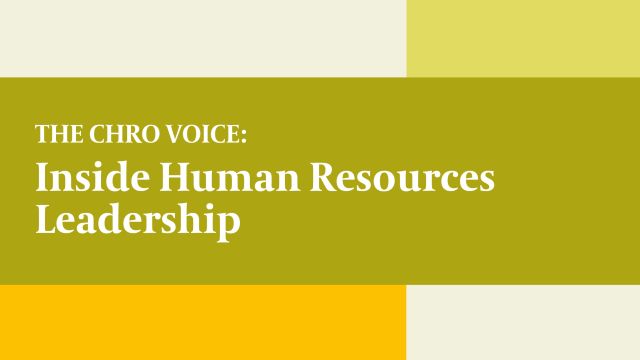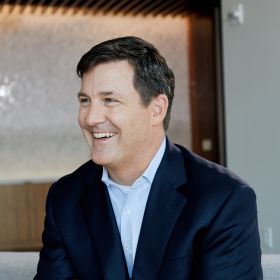The HR function is more significant and impactful than ever. We are essential business partners, actively driving the business forward.
 Jill WilsonSVP of Human Resources, Carter's Inc.
Jill WilsonSVP of Human Resources, Carter's Inc.
Named CHRO of the year in 2024 by the Atlanta Business Chronicle, Jill Wilson has been a transformative force at Carter's Inc. since 2009.
As the Senior Vice President of Human Resources and Talent Development, she has significantly influenced the company's HR strategies and community affairs. In this interview, Jill shares her experiences, challenges, and strategies in navigating the multifaceted role of CHRO, emphasizing the importance of networking, strategic involvement, and succession planning.
The CHRO role is often described as one of the loneliest roles in the C-suite. Does that resonate with you?
I do think the CHRO role can be a lonely role for several reasons, but most often because you possess information, sometimes it's material nonpublic information, that you can't talk to anyone else about. Or it's because you're deep into scenario planning and succession planning and you just cannot share that broadly with your peer group.
The number one thing that has helped me combat that loneliness is connecting with CHROs across my community. And I am grateful to Egon Zehnder consultants who introduced me to and welcomed me into the HR community. They were the first firm to invite me to a CHRO dinner, and that is where I started my HR networking across the city more than a decade ago. And I have those relationships to this day—we are there for each other and we partner with each other.
How do you navigate the multifaceted role of CHRO, balancing the management of the HR function with influencing the broader business strategy and leadership team?
To strike a balance, you need to prioritize your work through a strategic lens. Whether it's visiting stores, factories, or meeting customers, being actively involved helps you understand the company's operations intimately.
On top of that, many CHROs also have other responsibilities within the company. In my case, I have Community Affairs. So, you need to manage through multiple lenses and ensure you spend quality time on senior-level business initiatives while also attending to the daily HR functions for thousands of employees.
How is the CHRO role evolving in terms of succession planning at the C-level, and how deeply involved are you in these critical leadership transitions?
C-level succession planning is absolutely changing. CEOs are switching companies more often these days, so the board, executive leaders, and CHROs are all a part of the succession process. Some of the best advice I can give is to start planning with a great external partner. Your internal team and the external partner are working together on sometimes a daily basis on the whole succession—from the initial planning through the onboarding. Recently, we teamed up with Egon Zehnder for a CEO and president transition, and it worked out great thanks to this strong collaboration.
I would also tell CHROs not to be reluctant to ask for help. That's what your partners are there for—ask them what your role should be and how you can be most helpful and engaged.
Like many functions, the skill set required to succeed in HR is constantly evolving. What do you believe are the most crucial skills for future HR leaders?
I’m going to boil the most critical skills down to four elements. First, you must balance strategy with execution. Strategy with no execution will not work, and neither will execution without the right strategy.
Second, you must be a true business partner. You can't wait for opportunities to come to you. You have to be there with the business partners, making the decisions together and making the recommendations and taking the lead in many cases.
Third, you must have a strong voice. There's no way for anyone to be successful without a point of view. You have to be confident and have the courage to share it.
Confidence and courage can be achieved by following the fourth point: data-driven decision-making. Much of what is done involves both art and science, but it is important to consider the data and analytics underlying these actions.
What advice do you have for the next generation of HR leaders in terms of their own development and their career paths?
Three things come to mind. The first is that you must commit to being a continuous learner. Take advantage of every opportunity, whether it’s following relevant publications or taking classes, and then couple that with in-person connection and partnership. Find your peer group and organizations that can help connect you across the community.
Second, we're often so busy doing our jobs that we forget to connect outside of HR. You have to expand your thought process outside of just what you do. What I did, for example, is participate in a leadership forum called Leadership Atlanta where I got to hear from top leaders across Atlanta about all their challenges and solutions and how they're driving things. Then I took those learnings back to my company.
The third is to find a method to keep up with current events, which can be difficult in today's world. Because between the time you went home one evening and the morning of the next, things may have shifted, and your priorities need to adjust.
How have the skills needed for the HR function changed over your time as an HR leader?
When I initially took on this role, the skill sets were focused more on being supporters rather than drivers. The emphasis was on supporting decisions and then executing them exceptionally. But today you must be a driver and a strategist. You also need to address business matters proactively by considering the ongoing macro issues and recognizing talent and personnel concerns that may not be apparent to others. The key difference now is to anticipate these issues rather than react to them.
HR leaders have experimented with AI, but many feel stuck in the initial stages. How are you using AI in your HR strategy, and what role do you see it playing in the future?
CHROs are pivotal in leveraging AI. HR has been quick to dive into AI, and at Carter's, we are using it extensively. We’ve found quick wins in AI recruitment, affectionately naming our AI tool Alicia. Alicia assists with frontline recruiting, streamlining the process from application to interview, cutting down days of work. This is particularly beneficial during peak hiring seasons. Now we’re trying to take things to the next level, which is agent AI. As one of my favorite quotes reads, “AI will not take human jobs; it will take humans' jobs who do not embrace AI.” So, it's not about losing your job to AI, but about partnering with it. Embrace AI, and you’ll thrive.
Egon Zehnder has had the pleasure of working with you for nearly 10 years, witnessing your evolution as a CHRO. As you look to the future, what excites you about HR for the coming years?
What excites me the most is the constant evolution—both of leaders and of the HR role itself. The HR function within companies is becoming more significant and impactful than ever before. We are essential business partners, not just in resolving challenges, but in actively driving the business forward. With so many new tools at our disposal, we can innovate, operate more efficiently, and achieve superior results.







